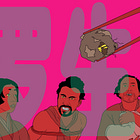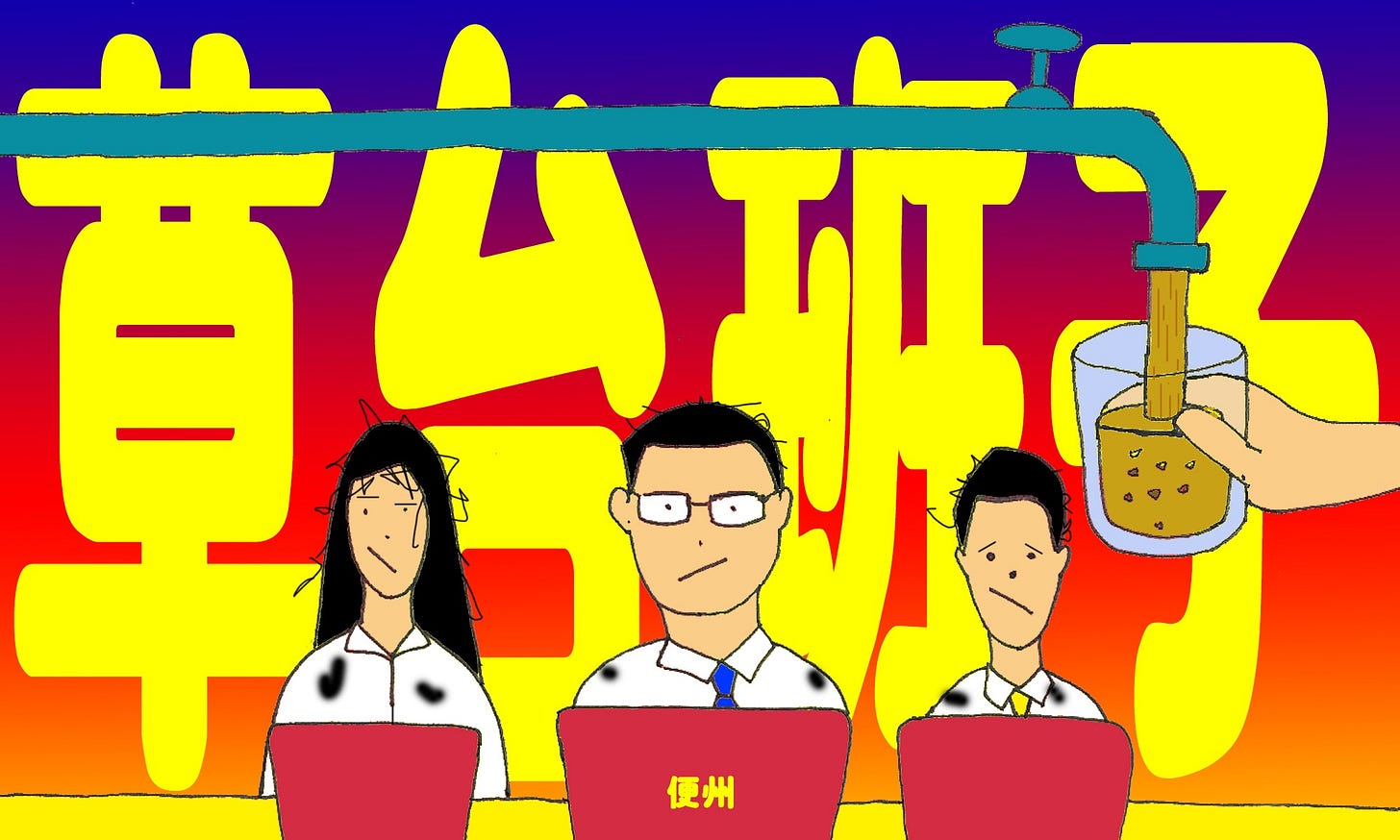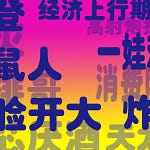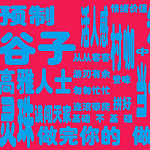Welcome to RealTime Mandarin, a free weekly newsletter that helps you improve your Mandarin in 10 minutes a week.
Subscribe today to get your fluency back, stay informed about China, and communicate with confidence in Chinese — all through immersion in real news.
In the early hours of July 16, residents in several neighbourhoods across Hangzhou noticed a strong, foul smell coming from their tap water.
Many others found out later through online forums and property owner group chats, as images of grey-brown water filling sinks and cups circulated. Some of these images quickly went viral on social media as concerned residents began to share them more widely.
As anger mounted, more stories surfaced. Residents complained of skin irritation and, in some cases, stomach pain. Local hospitals reportedly treated at least 12 people who had fallen ill.
Despite the growing concern, the authorities remained silent for most of the day. It wasn’t until 9:44pm that evening, that a brief statement was released by Yuhang Environmental Water Group, the state-owned company responsible for water supply. By then, many residents had already used the contaminated water for cooking or washing. The statement gave little detail and no explanation of the cause.
The following day, on July 17, the company issued a second statement, this time offering a formal apology and proposing compensation: affected households would receive a discount on their water bill equivalent to five tonnes of free water.
It may sound generous, but as one resident put it, the amount was laughable and worth almost nothing:
“5 tonnes of water costs about 14.5 yuan. With the coupons offered by delivery platforms in the great delivery wars, that’s enough money for three cups of milk tea.”
5吨水费差不多是14.5元。在现在的外卖大战背景下,足够你喝3杯奶茶了。
Note: RealTime Mandarin readers will know all about the “Great Delivery Wars”.
Related
In the second statement, the water authorities also denied rumours that the tap water had been contaminated with sewage, which one of many theories circulating in the absence of any official explanation. But they still failed to clarify the real cause.
This lack of transparency only intensified public anger and speculation.
Social media feeds quickly filled with memes and jokes, many playing on the phrase “eat shit” (吃屎). Usually considered vulgar, the phrase was repurposed with biting humour to mock the authorities, with comments like:
“It fills the gap in Hangzhou people’s childhood of never having eaten shit” (填补了杭州人小时候没吃过屎的空白)
“Now even eating shit is water metered.” (现在吃屎都要走水表了)
“From now on, when Hangzhou people argue online, no matter what they say, others will come back with ‘you’ve eaten shit—and you did so for just 14 yuan.’” (以后杭州人在网上和人吵架,不管说啥都会被人用你吃过屎回击,而且吃回屎就值14块钱)
The entertaining wordplay continued to flow, like, well sewage flowing out of a Hangzhou tap.
Idioms were adapted to fit the context, swapping the character for "feces" (粪 fèn) or "shit" (屎 shǐ) into existing idioms with similar sounding characters:
屎到临头 — "shit has arrived" (Original: 死到临头 – “Your number is up”)
屎无前例 — "unprecedented shit" (Original: 史无前例 – “Historically unprecedented”)
粪围感 — "a sense of being surrounded by shit" (Original: 氛围感 – “Atmosphere” or “vibe”)
These are all great linguistic innovations, ideal content for a newsletter about modern Chinese language, but the prize for the most creative wordplay goes to a new nickname for Hangzhou: “Toilet City” (便州).
It’s a parody of a well-known poem by Lin Sheng (林升), a poet from the Song dynasty. The original line reads:
“The warm breeze intoxicates the tourists, who mistake Hangzhou for Bianzhou (Kaifeng).”
暖风熏得游人醉,直把杭州作汴州。
The poem was written during the Southern Song period (1127 – 1279), when Hangzhou served as the capital. By contrast, Bianzhou (modern-day Kaifeng) had been the capital of the Northern Song dynasty (960 – 1127) before it was lost to the invading Jurchens.
The line of the poem, which anyone in China with a high school education would know, contrasts the peaceful atmosphere in Hangzhou, as “The warm breeze intoxicates the tourists” with the jarring idea that people there “mistake Hangzhou for Bianzhou”, as if the war had never happened. It’s a subtle critique of the Southern Song court, suggesting that the rulers had grown complacent in their tranquil southern refuge, forgetting that they had lost the north of the country.
To this day, the poem is used as a veiled criticism of out-of-touch leadership.
In this latest parody, the criticism is far less subtle: the bian (汴) in Bianzhou is replaced with bian (便), meaning “toilet”, which sounds exactly the same. A line once meant to remind rulers of being out of touch has now been turned into a crude joke about the current state of the city:
“The warm breeze intoxicates the tourists, who mistake Hangzhou for a Toilet City.”
暖风熏得游人醉,直把杭州作便州。
Back to present day Hangzhou, eventually, investigations revealed that the sewage-like odour was caused by a release of sulphur compounds from a massive algal bloom in the Shaoxi River (苕溪), which feeds one of the reservoirs of the city. The authorities also confirmed they had switched to the backup reservoir in Sanbaitan, and the problem had been resolved.
But the response came too late. Criticism and rumours continued to spread, including claims that a water official responsible for the incident had fled the country. The widespread mistrust towards the water company and the authorities for their poor handling of the situation echoed a similar water safety crisis in Hangzhou back in July 2020.
And as we’ve seen many times before in this newsletter, poor communication at the beginning of a public safety incident only makes matters worse.
So, that’s what we’re exploring this week!
🎧RTM Podcast Preview
This week on the RTM Advanced podcast, we go deep into the hilarous memes and wordplay around this incident, and explain confusing idioms and phrases which use animal parts to make a point:
“Putting a dog tail on a marten” (狗尾续貂 gǒu wěi xù diāo)
“Painting legs onto a snake” (画蛇添足 huà shé tiān zú)
“Ate a bear's heart and a leopard's gallbladder" (吃了熊心豹子胆 chī le xióng xīn bào zi dǎn)
Confused? Don’t be: tune in at 7 minutes where we break down what they mean, how native speakers use them, and how you can use them in real conversations.
Favourite Five
1. 草台班子 cǎo tái bān zi
makeshift troupe, clown show
这场闹剧活生生演绎了什么叫 “世界是个巨大的草台班子” - This farce vividly illustrates what it means when people say “the world is just one big clown show". [1]
More: Learn more about the Qing dynasty origins of this phrase in tomorrow’s Sinica Phrase of the Week!
2. 废话文学 fèi huà wén xué
nonsense literature, empty talk
显然,通报所言既没解决问题,又没安抚到居民,一整个废话文学 - Clearly, the statement neither solved the problem nor reassured the residents; it's all just empty talk. [3]
3. 狗尾续貂 gǒu wěi xù diāo
putting a dog tail on a marten; to ruin something good by adding something inferior
狗尾续貂,后面续的貂是谣言 - It’s like putting a dog tail on a leopard, the tail being the rumour. [4]
Note: a marten (貂 diāo) is a small mammal prized for its soft, luxurious fur. In ancient China, marten fur symbolised status and power — nobles and top officials often wore robes lined with it, and hats with marten tails (貂尾) to show their rank.
4. 画蛇添足 huà shé tiān zú
painting legs onto a snake; unnecessary addition
只是说刘某某潜逃是谣言,画蛇添足,后面添的足是谣言 - It only refutes theclaim about Liu’s escape; it’s like adding legs to a snake, the legs being the rumour. [4]
5. 吃了熊心豹子胆 chī le xióng xīn bào zi dǎn
to have reckless courage, to act boldly and recklessly
不知道是谁吃了熊心豹子胆敢造谣警方通报 - I don’t know who was so reckless to fake the police statement. [4]
💡 Ready to get inspired to bridge the gap to real-world fluency? 💡
Every RTM post is packed with tools to inspire and help you get fluent.
It's designed to fit your busy life, your learning style, and your level—whether you’re “intermediate”, “advanced but rusty”, or “fluent with gaps”.
So, ready to finally get started and wave good bye to that nagging rusty feeling?
Let’s jump in👇

















